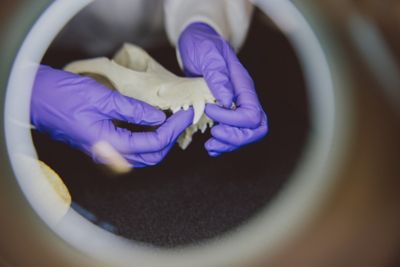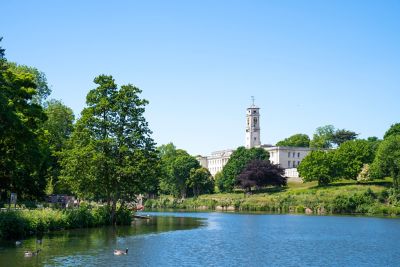International study
If you are interested in studying abroad for a full academic year, choose our BSc Natural Sciences with International Study or MSci Natural Sciences with International Study. It is also possible subject to the necessary progression requirements being achieved, to transfer to these programmes once you are here.
We currently have 26 partners worldwide including partners in North America, Europe, Australasia and South East Asia. Studying abroad gives you the chance to learn about your subjects from a different perspective as well as building your independence and communication skills.
In order to undertake International Study, you will need to achieve the relevant academic requirements as set by the university (60% average in Y1 – 65% for some partners) and meet the selection criteria of both the university and the partner institution.
The marks on your year spent abroad do not count towards your final mark.
Study in Malaysia
If you are studying specific combinations of subjects then you can spend all or part of your second year at our Malaysia campus. The modules you will study will be the same as if you were in the UK (or comparable) which means unlike study abroad you can still complete your degree in three years. All teaching is in English.
Placement year
Natural sciences students have the option to transfer during their degree to a named ‘Natural Sciences with Placement Year’ programme.
Previous students have spent time working for companies including:
- Accenture
- KPMG
- EMEC (East Midlands Environmental Consultants)
- RSPB
- Rolls Royce
A placement provides a unique opportunity to put theory into practice, gain practical experience and build further skills and competencies that will put you a step ahead on the graduate career ladder. Students looking for placements are provided with support through the Careers and Employability Service and a few specialist teams in specific subject areas.
While out on placement each student will be appointed a Placement Tutor who will stay in touch throughout the placement to make sure that everything is going well. Once you have transferred the name of your degree programme will change to include the statement ‘with placement year’, for example, MSci Natural Sciences with placement year. It will then become a five-year course.
Year in Computer Science
You can add to this degree by spending an extra year in the University’s School of Computer Science. This is designed to provide you with training in software development and computing skills to enhance your studies and your career options. You will be able to transfer into this programme from the BSc or MSci course (subject to progression criteria).
You will graduate with a named degree BSc Natural Sciences with a Year in Computer Science.
We recommend that students considering either the Placement Year or the Year in Computer Science programmes apply for the International Study programme as this matches the duration of the programme you will study.
International study
If you are interested in studying abroad for a full academic year, choose our BSc Natural Sciences with International Study or MSci Natural Sciences with International Study. It is also possible subject to the necessary progression requirements being achieved, to transfer to these programmes once you are here.
We currently have 26 partners worldwide including partners in North America, Europe, Australasia and South East Asia. Studying abroad gives you the chance to learn about your subjects from a different perspective as well as building your independence and communication skills.
In order to undertake International Study, you will need to achieve the relevant academic requirements as set by the university (60% average in Y1 – 65% for some partners) and meet the selection criteria of both the university and the partner institution.
The marks on your year spent abroad do not count towards your final mark.
Study in Malaysia
If you are studying specific combinations of subjects then you can spend all or part of your second year at our Malaysia campus. The modules you will study will be the same as if you were in the UK (or comparable) which means unlike study abroad you can still complete your degree in three years. All teaching is in English.
Placement year
Natural sciences students have the option to transfer during their degree to a named ‘Natural Sciences with Placement Year’ programme.
Previous students have spent time working for companies including:
- Accenture
- KPMG
- EMEC (East Midlands Environmental Consultants)
- RSPB
- Rolls Royce
A placement provides a unique opportunity to put theory into practice, gain practical experience and build further skills and competencies that will put you a step ahead on the graduate career ladder. Students looking for placements are provided with support through the Careers and Employability Service and a few specialist teams in specific subject areas.
While out on placement each student will be appointed a Placement Tutor who will stay in touch throughout the placement to make sure that everything is going well. Once you have transferred the name of your degree programme will change to include the statement ‘with placement year’, for example, MSci Natural Sciences with placement year. It will then become a five-year course.
Year in Computer Science
You can add to this degree by spending an extra year in the University’s School of Computer Science. This is designed to provide you with training in software development and computing skills to enhance your studies and your career options. You will be able to transfer into this programme from the BSc or MSci course (subject to progression criteria).
You will graduate with a named degree BSc Natural Sciences with a Year in Computer Science.
We recommend that students considering either the Placement Year or the Year in Computer Science programmes apply for the International Study programme as this matches the duration of the programme you will study.






